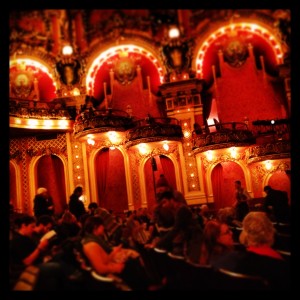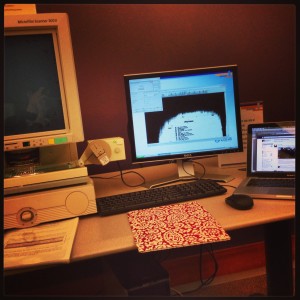So have you guys seen the article about Parsing is Such Sweet Sorrow that’s been going around lately?
It was brought to my attention by a mentor of mine and I have a few colorful things to say about the project.
Let me start here: Yes! Computers are useful! And yes! Digital humanities has some really exciting applications, even in the field of theatre! You might think that this is a really simple thing to say/discover, but please let me take a moment to tell you how many meetings I’ve sat in on where I’ve heard theatre scholars of varying levels say either directly or indirectly “the digital humanities have no holding on my field.” WRONG. Computers are great at certain things that can make all of our lives easier. They’re awesome at searching things, they’re fantastic at pattern recognition, they can find and share information across the world faster than you can say “speed of light” (…unless you’re on dial-up for some god forsaken reason in which case I’m so very sorry for you).
So well and truly: I think that Emma Pierson, the researcher who put together this project, is onto something really important: using computers with theatre!
That said, the findings aren’t anything new. Heck, I could have told you exactly what she told you with her fancy charts and graphs without even boning up on my Romeo and Juliet (…though I will admit, my ability to quote Shakespeare from memory has been referenced in casual conversation as “inhuman” and “more than any healthy human being should really know”).
I took issue with a few metrics used in this study. First and foremost, the length of the plays weren’t taken into consideration. Placing Romeo and Juliet (a play of 24,535 words) on the same graph as A Midsummer Night’s Dream (16,511 words) without re-jiggering some appropriate metrics creates a skewed representation of the data (the average length of a play for Shakespeare, by the by, is 22,595 words which is the approximate length of Richard II… give or take a couple hundred words). So while this data isn’t technically wrong, creating comparisons between these plays without figuring percentages of lines rather than number of lines creates a false sense of what’s actually going on here. We can’t compare if there’s no real basis for comparison, and unfortunately Pierson has presented data that lives in its own world. She’s just put those worlds side by side on the same axis and color-coded it to make it look cohesive. It’s really not.
Pierson begins to unpack this data and postulates that the plays with the most connected lovers are also those with strong women. I’m not certain we can really draw that conclusion from the limited sample size utilized in this study. There are a few very notable strong women who are completely left out: Rosalind, Julia, Imogen, and Helen come to mind immediately. What happens if we add the Princess of France and Rosaline from Love’s Labour’s Lost to this mix? I think that will pretty well throw a monkey wrench in the entire operation considering the lovers in LLL hardly ever interact. Or how about Isabella from Measure for Measure? Can we even call her a “lover”? She’s certainly a strong female Shakespearean lead… and she definitely ends up married at the end of her play… so what do we make of her?
I’m a huge fan of crafting visualizations like this to create conclusive and interactive data about things which were previously opinion based and, subsequently, inconclusive. My large issue with the “Parsing” project is that it has so many holes. Certainly it begins some new brainwaves, which is always good, but I’d love to see this information a bit more thoroughly teased out. Honestly, I’d love to have the opportunity to get my hands dirty with it. What could we find out from a study like this if we didn’t cherry-pick our plays? I’m not sure, but I’d really like to find out.
At the end of the day, this is the important take-away: computers are only bound by our puny human brains. Imagination is what will be the limiting variable in any study; even ones which utilize advanced technology to create neat little bar graphs.






 benefit of “friendly competition” to the arts, I can most certainly say that this event encourages good social habits for an artist to have: a sense of accomplishment with one’s own work, and a sense of awe and inspiration from the work of one’s peers.
benefit of “friendly competition” to the arts, I can most certainly say that this event encourages good social habits for an artist to have: a sense of accomplishment with one’s own work, and a sense of awe and inspiration from the work of one’s peers.